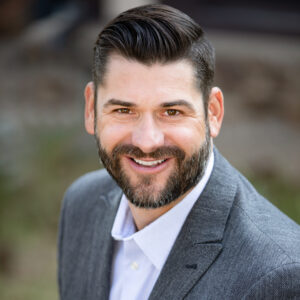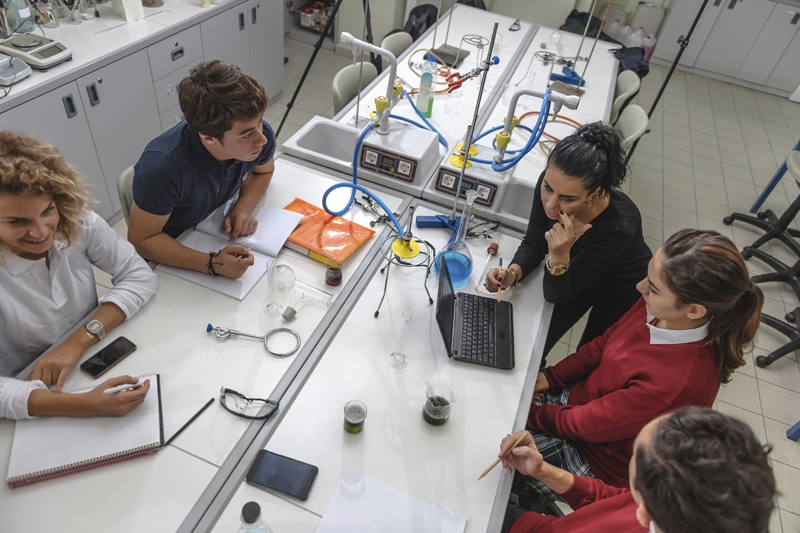Re-Thinking Schools with the Education Secretary
Colorado Succeeds members have a long history of meeting with the nation’s highest education official. Since our founding in 2006, industry and business leaders from our coalition have met with each sitting U.S. Secretary of Education to share a business perspective on education and talent development. We are committed to amplifying this point of view in a non-partisan way and we are willing to meet with anyone who will listen.
Recently, the Secretary’s office reached out to us asking for a roundtable discussion with business leaders in Denver during her back-to-school tour. The theme of her tour is “re-thinking schools” and she was eager to learn more about Colorado’s talent development efforts and work-based learning pilots. The meeting was hosted by RK, a Denver-based mechanical contracting company that is committed to industry-led apprenticeships through its program, RK University. Honestly, we could have curated a full-day or even a week of visits, ranging from CareerWise to P-TECH to Emily Griffith, and we still wouldn’t have covered the impressive range of work-based learning opportunities for Colorado’s students. Highlighting RK’s apprenticeship program was just one opportunity for the country to see how Coloradans are truly re-thinking what learning looks like.
The Secretary was eager to meet with and hear the stories of the RK apprentices. Several shared their non-traditional routes to continuing education and employment through RK’s program. The common theme – an improved opportunity at success for themselves and their families, higher paying jobs, and advanced education that is continuing to help them in pursuing their goals.
True to our non-partisan roots, the roundtable was attended by a cross-section of business leaders, with varying political leanings, backgrounds, and perspectives. What connected them all was their interest in ensuring that all of Colorado’s students have the opportunity to achieve their greatest potential and are prepared for the ever-changing economy and jobs that will come with it. One leader in the room got the conversation started with an important distinction. “We believe there are two kinds of businesses: education consumers and education contributors. Everyone around this table is here today because we are steadfast about being the latter.”
Most of the conversation centered around the Secretary asking the leaders in the room to share their experiences and what she could do to improve the conditions that would enable more innovation to flourish. Some business leaders shared technical barriers or other examples of strong work-based learning. A common theme was a desire for students to have increased exposure to career pathways and fully understand the breadth of career opportunities that are available with some post-secondary education, though not necessarily a four-year degree. Several described a penchant for a personalized approach to learning that meets students where they are and supports them in growing their skills and competencies over time, as they demonstrate mastery. They also described the desire to see measurable improvement in students’ acquisition of “soft skills” such as critical thinking and problem solving.
The Secretary listened carefully and repeatedly asked follow-up questions. She responded that the most dramatic changes need to happen at the state and local level. She offered that the role of the federal government is to amplify and share what works. She also left the attendees with an important challenge. She asked the business leaders in the room how they are supporting educators in increasing the relevance of school. She explained that she is eager to see new approaches to learning that engage students in their learning and challenges them to take ownership of their learning. Along those lines, she encouraged the attendees to think differently as they look at education approaches. She asked our coalition to identify where barriers, artificial and real, may exist and continue to elevate them for government leaders to act.
The meeting was an important opportunity for Colorado to showcase its efforts to build an education system that will prepare kids for the future. As an organization that has always urged political leaders to see the long-game, the roundtable was another way to push us all to think about ways we can support innovation and remove barriers that stand in the way.

